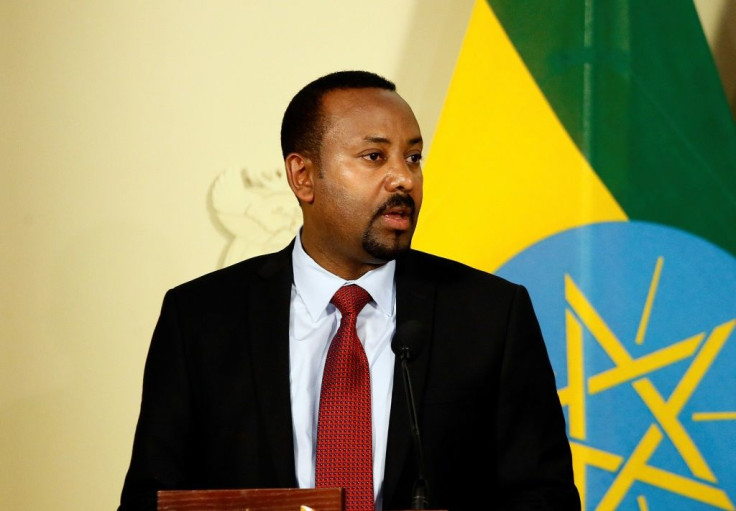Ethiopian PM Urges Tolerance As Anti-foreigner Sentiment Rises Over Virus

Ethiopian Prime Minister Abiy Ahmed on Thursday urged citizens not to discriminate against certain nationalities as virus cases rise, after reports of anti-foreigner sentiment in the country.
Ethiopia has recorded six cases of the novel coronavirus over the past six days, and the United States embassy on Wednesday said there were a number of reports of verbal and physical harassment of foreigners deemed to be bringing in the virus.
"As COVID-19 awareness efforts continue nationally, it is important to note that the virus is not related to any country or nationality," Abiy said in a statement.
Abiy was awarded the 2019 Nobel Peace Prize for reaching out to Ethiopia's rival, Eritrea.
"Everyone is equally at risk... Prevention efforts need not be a barrier to our humanity and disposition for compassion. As a global community, we are each other's keepers. Let us not let fear rob us of our humanity."
Three of the confirmed cases of COVID-19 are Japanese nationals, one is a British diplomat and two others are Ethiopians.
In its security alert, the US embassy said it had received reports of "a rise in anti-foreigner sentiment revolving around the announcement of COVID-19 in Ethiopia."
"Reports indicate that foreigners have been attacked with stones, denied transportation services ... being spat on, chased on foot, and been accused of being infected with COVID-19."
Africa has lagged behind in confirmed cases of coronavirus, and now has reported over 730 cases across the continent, according to an AFP tally.
"Before last Friday 10 countries have reported cases of coronavirus, mostly imported. Over the weekend the continent tipped over and as we now know over 34 countries that have reported coronavirus infection," the director of the African Centre for Disease Control (CDC) John Nkengasong said Thursday.
World Health Organization (WHO) chief Tedros Adhanom Ghebreyesus on Wednesday urged Africa to "wake up" and warned the official numbers likely did not reflect the full picture.
"Probably we have undetected cases or unreported cases," he said.
Experts have repeatedly warned about the perils for the continent, given its weak health infrastructure, poverty, conflicts, poor sanitation and urban crowding.
However several nations have taken strict measures, completely banning flights, banning non-residents, shutting schools and blocking mass gatherings.
Nkengasong said some 60,000 tests should be rolled out across the continent by Monday.
"The three leading countries (Egypt, South Africa, Algeria) were part of the countries that had the first influx of cases. You can see community infection is fast establishing in those countries," he said.
© Copyright AFP 2024. All rights reserved.





















